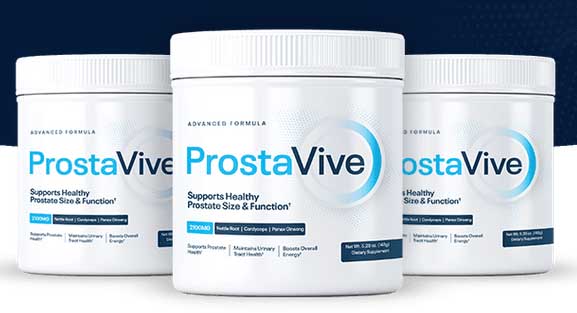Pygeum for prostate health: The Unsung Hero of Your Prostate (Or: Why Your Bladder Should Send a Thank You Card)
If you’ve never heard of pygeum, congratulations, you’re like 99% of the population. But don’t let that lull you into a false sense of security—your prostate knows, and it’s been waiting for you to figure it out.
Pygeum, derived from the bark of the Pygeum africanum tree (because naming things simply isn’t fun anymore), has been used for centuries to keep men’s plumbing in tip-top shape. And by “plumbing,” I mean that little walnut-sized gland squatting unceremoniously under your bladder, quietly controlling everything from urine flow to fertility like a tiny but terrifying dictator.
So let’s break this down, shall we? Here’s why pygeum deserves a starring role in your prostate’s self-care routine.
The Prostate: A Brief but Important Interruption
Ah, the prostate. Most guys ignore it until it starts causing problems, kind of like the check engine light in your car. But here’s the deal: if you don’t take care of it, sooner or later, it’s going to stage a full-scale rebellion. Symptoms like frequent nighttime bathroom trips (because apparently, sleep is optional past 40), weak urine streams, and the general sensation of being held hostage by your own bladder—these are all signs that your prostate is waving a little white flag.
Enter pygeum, the botanical bouncer your prostate didn’t know it needed.
Pygeum for prostate health: The Science (But in a Cool, Non-Boring Way)
Pygeum has been shown to work its magic in three major ways:
- Reducing Inflammation: Your prostate, much like your inbox, can get a little overwhelmed. Pygeum contains phytosterols that help reduce inflammation, which in turn helps ease symptoms of benign prostatic hyperplasia (BPH). Less swelling = happier bladder.
- Blocking Nasty Hormonal Shenanigans: A major culprit behind prostate growth is dihydrotestosterone (DHT)—the same hormone responsible for male pattern baldness. Pygeum helps reduce DHT levels, which means less prostate swelling and possibly, fewer panicked Google searches about hair transplants.
- Supporting Bladder Control: No one wants to be the guy mapping out every public restroom within a 5-mile radius. Pygeum helps improve bladder emptying and reduce the number of late-night sprints to the toilet. More sleep = less looking like a zombie at work.
The Studies (Because I Know You’re Thinking, “Sure, But Does This Stuff Actually Work?”)
Fair question. Let’s talk about some actual science (don’t worry, I’ll keep it entertaining).
Multiple studies have shown that pygeum is effective in reducing BPH symptoms. One meta-analysis reviewed 18 clinical trials and found that men taking pygeum experienced a 35% reduction in nighttime urination, a 31% improvement in urine flow, and an overall 66% satisfaction rate (which is higher than most people feel about their internet service provider, so that’s saying something).
Another study published in the journal European Urology found that pygeum significantly reduced prostate swelling and improved urinary function within a few weeks. And since no one enjoys peeing like a lawn sprinkler on the fritz, that’s a win.
Pygeum for prostate health: How to it (Without Overthinking It)
The good news? Pygeum is available in supplement form, usually as capsules or extracts. The standard dose is around 100-200mg per day, often split into two doses. Most studies suggest taking it for at least 2 months to see real benefits (because, unfortunately, nature doesn’t operate on Amazon Prime delivery speed).
Side effects? Minimal. A few guys report mild stomach discomfort, but nothing that’ll have you dramatically clutching your abdomen like a soap opera character.
Can’t I Just Ignore My Prostate and Hope for the Best?
You could. But that’s like ignoring your credit card bill and hoping the bank forgets about it. Spoiler: they won’t.
As men age, the risk of prostate problems skyrockets. By age 50, half of men have an enlarged prostate. By age 80, that number jumps to 90%. And while we all love rolling the dice, gambling with bladder control isn’t exactly a high-stakes poker game you want to lose.

Final Verdict: Should You Take Pygeum for prostate health?
If you enjoy uninterrupted sleep, efficient bathroom trips, and maintaining control over your own bladder, then yes.
Pygeum is a natural, science-backed way to support prostate health without invasive procedures or prescription meds that come with a laundry list of side effects. It’s been used for centuries, studied for decades, and is widely considered a safe, effective option.
Plus, your future self will thank you. And if we’ve learned anything from every time-travel movie ever, it’s that future-you is usually right.
Bonus: Other Prostate-Friendly Habits to Adopt
Since we’re already here, let’s throw in a few other things your prostate will appreciate:
- Eat More Tomatoes: Lycopene, the magic compound in tomatoes, is basically the superhero of prostate health. More pizza, less guilt.
- Exercise Regularly: Your prostate likes movement. Even just walking helps reduce BPH risk.
- Cut Down on Booze & Caffeine: I know, I know. But both irritate the bladder. Balance is key.
- Stay Hydrated (But Not Too Much Before Bed): You want to drink enough water, but not so much that your bladder declares war at 3 a.m.
- See a Doctor If Things Get Weird: If you’re experiencing persistent prostate symptoms, don’t try to tough it out. Go get checked.
Final Words (Because I Have to Wrap This Up Eventually)
Listen, your prostate isn’t asking for much. A little TLC, a daily pygeum supplement, and maybe fewer gallons of coffee, and you’ll be in great shape.
So do yourself a favor—start taking care of it now. Because the alternative is explaining to your doctor why you’ve been peeing in Morse code.
Your move.
Best
Al
PS Want to add to this piece? Please leave a comment below!
